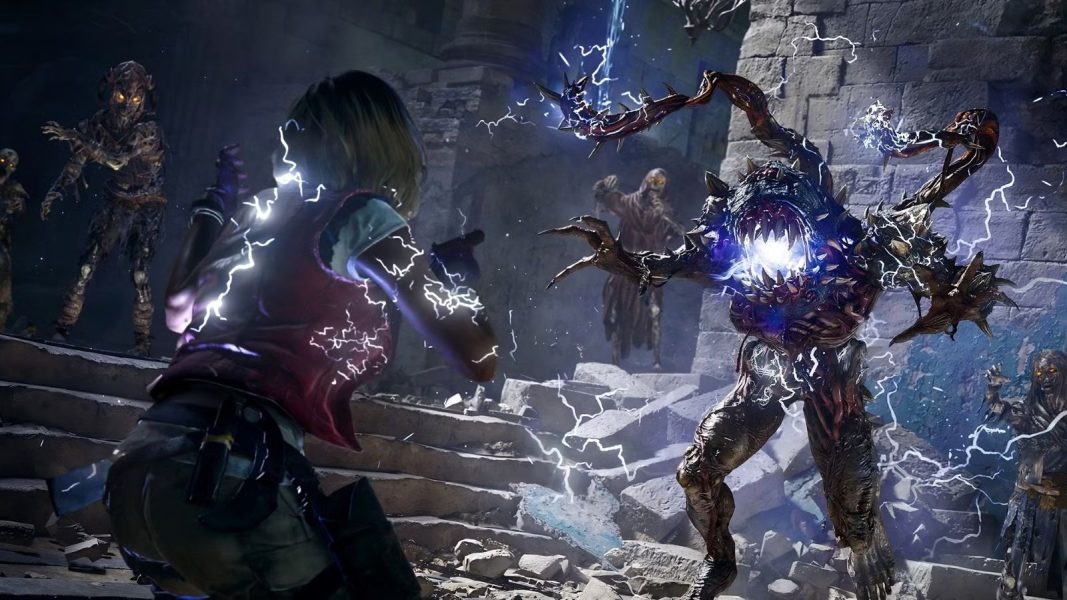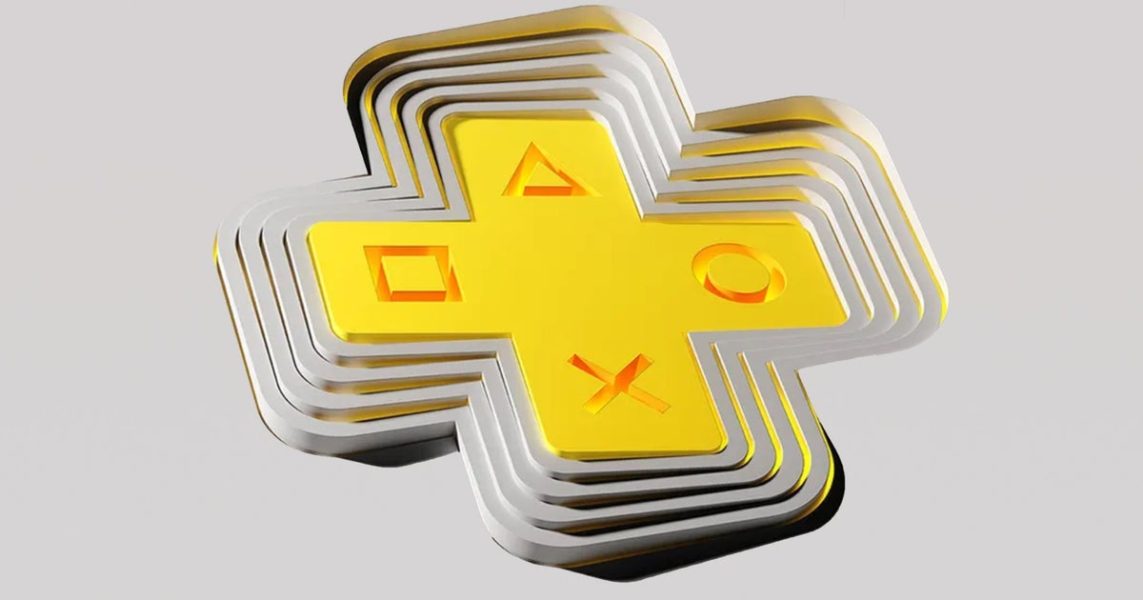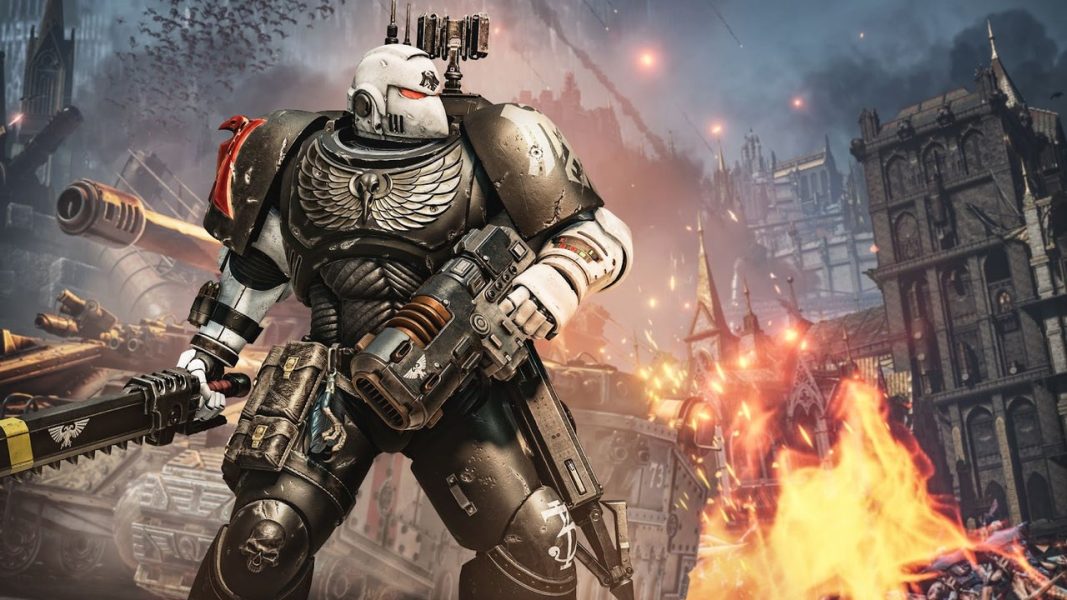Auschwitz-Birkenau: Remember the millions who can’t tell us what they went through, Auschwitz survivor says – BBC.com

Around 50 survivors of the Holocaust, some of whom told their stories, have led commemorations to mark 80 years since the liberation of the Auschwitz-Birkenau death campTova Friedman, 86, recalls her journey to the camp: “The cries and prayers of so many desperate women permeated my soul and haunt me to this day”Friedman, who was six when Auschwitz was liberated, says: “I thought to myself, am I the only Jewish child left in the world?”Meanwhile, Marian Turski, a 98-year-old whose brother and father were murdered at Auschwitz, says we should remember the millions who are not able to share what they went throughBBC’s Paul Kirby, reporting from Auschwitz, says: The words echoing here today belong to the dwindling number of survivorsThe BBC is marking the day with special programming across TV, radio and onlineSome 1.1 million people, most of them Jews, were murdered at the Auschwitz complex, making it the site of the largest mass execution of human beings ever recordedThis video can not be played”We are here to pledge that we will never allow history to repeat itself”By Jamie Whitehead and Matt Spivey, with Paul Kirby reporting from AuschwitzThe 80th anniversary of the liberation of Auschwitz has come to a close, and so too will our coverage. It was a momentous day for survivors who remember when the infamous death camp was liberated, recounting their harrowing tales at a commemorative service held at Auschwitz-Birkenau.Other services were held around the world, including in London where the prime minister joined the Prince and Princess of Wales paying tribute to survivors.This is where we will end our live coverage however there is plenty more on the topic on offer elsewhere on the BBC News website:Today has
been a day of deep reflection. Survivors of Auschwitz, who were so very young
when they were deported to the labour and death camps under the Nazi regime,
but for whom the memory remains so vivid, have been recounting their
experiences.Here is how
the 80th anniversary of the liberation of Auschwitz unfolded:Survivors, world leaders, and delegates gathered today at Auschwitz-Birkenau to attend a service commemorating 80 years since the liberation of the camp.They heard testimonies and addresses from survivors, music performances and prayers. Take a look at some of the key pictures from the day:Before the commemoration event, survivors and their families attended a wreath laying ceremony at the Death Wall – here we see survivor Janina IwanskaSurvivors spoke during the commemoration event, and shared their personal stories – pictured here is Tova Friedman, who was one of the youngest survivors of AuschwitzWorld leaders, including Ukrainian President Volodymyr Zelensky, lit candles during the ceremonyKing Charles III took a tour of Auschwitz after the event and viewed the collection of personal items confiscated from victims as they entered the campKatya Adler and Kathy LongMala Tribich, seated, shares her story of survival with students through the Holocaust Educational Trust’s outreach programmeWe just heard from one of the Holocaust survivors who attended today’s commemorations, Mala Tribich, who was nine when she was forced into a Jewish ghetto in Nazi-occupied Poland.She was later liberated from the Bergen-Belsen camp in 1945 and
re-settled in the UK after being reunited with her brother. Her story of survival is one she shares with young people
through events organised by the Holocaust Educational Trust’s outreach
programme. At a recent event, Tribich met with teenage students at a school
in London and her personal account – such as when her mother and younger sister
were taken away and shot in a forest – had a profound impact on the youngsters.”It’s the little things like that that aren’t spoken about
at school that really makes you realise the magnitude of things like the
Holocaust and what they mean to people who have to experience it,” says
student Luke. Fellow student Milad agrees: “Hearing from someone who was
actually experiencing that, I feel like now I understand it better. I’ll
believe more of what I’m hearing and it’s better to hear from a witness than
just reading off a sheet of information”. For Julia, the lesson from Tribich’s story is simple:
“There’s always going to be a struggle in standing up for what’s right but
if it’s the right thing to do, then you should definitely go for it.”Katya Adler and Kathy LongReporting from AuschwitzOne of the survivors who attended today’s commemorations is Mala
Tribich, now in her 90s, who was nine when she was forced into a Jewish ghetto in Nazi-occupied
Poland. She was moved to the Ravensbrück concentration camp at the start
of the war and later liberated from the Bergen-Belsen camp in 1945. Speaking earlier today to BBC Radio 4’s Today programme, Tribich says
she’s honoured to be representing all the remaining British Holocaust survivors
at the commemorations. “I’m privileged because I feel that it is so important to
be here and to remember the victims,” she says, adding the site serves as
a warning “to act when you see that there is an injustice”. “The message is to try and change the world to a better
place, so there should be no discrimination against people who happen to have a
different religion or a different colour of skin or whatever. There should be
more tolerance of one another”.Tribich recalls the “process of dehumanisation” at the
Ravensbrück concentration camp, where everyone was ordered to strip naked, had
their heads shaved and were given a uniform. “When we looked at one another, we really couldn’t
recognise each other,” she says, “It’s so different when one hasn’t
got one’s hair. It really did something to our soul.”After she was liberated from Bergen-Belsen, Tribich moved to the
UK where she was reunited with her brother. She now spends her time sharing
her story with young people across the UK through the Holocaust Educational Trust’s
outreach programme. This video can not be playedUK landmarks lit up in purple in memory of Holocaust victimsMarta NewmanBBC NewsOn this day five years ago, BBC Breakfast told the story of Zigi
Shipper – who was just 14 when he was brought to Auschwitz simply because he
was Jewish.He was one of the very few who managed to survive. For many
years, he didn’t say a word about the unbelievable horrors he had witnessed
here. It was just too painful.But later in life, Zigi decided that he must speak out, so that
the Holocaust is never forgotten.Zigi died two years ago at the age of 93. But on this
anniversary we wanted to return to his story.Jon Kay travelled to Poland with Zigi’s two daughters Lu and
Michelle to find out more about their father’s early life before retracing his
time at Auschwitz.Standing underneath the Arbeit macht frei (‘Work sets you free’)
sign which her father would have walked through all those years ago Lu says:
“nothing can prepare you for this.“There are eighteen descendants now of Zigi’s family. From
Zigi’s life being saved there are now eighteen of us.”This is including baby Zigi, Zigi’s great grandson.“In a place of no hope we are that hope.”Prime Minister Sir Keir Starmer also spoke at the memorial
service in London this afternoon. He talked about meeting survivors, of feeling repulsion at the
stories they told, and of one moment during a tour of Auschwitz.He said he saw a photograph of Nazi guards standing with Jewish
prisoners, bearing looks of indifference, and in one case even smiling.”It showed more powerfully than ever how the Holocaust was
a collective endeavour by thousands of ordinary individuals utterly consumed by
the hatred of difference,” he said. “And that is the hatred we stand against today, and it is a
collective endeavour for all of us to defeat it.”Starmer announced that a National Holocaust Memorial and
Learning Centre is being established to remember the six million Jewish victims
and that Holocaust education will be made a “truly national
endeavour”. People around the UK are being asked to light a
candle in their windows this evening to remember those who were killed and to
stand against prejudice and hatred.Landmarks, buildings and monuments are lighting up purple as
part of the Light the Darkness national moment, including, the London Eye and
the Liver Building in Liverpool.A candle is also being lit at Number 10 Downing Street, which is also being lit up. As guests entered Guildhall in central London for the memorial earlier today, the
London youth chamber choir sang a rendition of Even When he is Silent, which is
based on lines scratched on a wall in Auschwitz believed to have been written
by an inmate there.Rob Rinder, chair of the Holocaust Memorial Day Trust advisory
board, then read an excerpt of the memoirs of George Saltan, a young polish
boy. It recounts his experience of antisemitism in the playground and watching
as his neighbours cheered and danced as German troops made a bonfire with the
Torah scrolls and prayer books.”Day by day our lives were changing and all we had
accumulated and accomplished was slipping away,” he said.Nadia RagozhinaReporting from AuschwitzTova Friedman, who was one of the speakers at today’s event, is
one of the youngest Holocaust survivors. She was brought to Auschwitz-Birkenau
at the age of just five and a half years old, with her parents.At today’s ceremony she said she has celebrated 27 January, the
day the Soviet army liberated the camp, as her birthday since she was liberated
as a child.I’ve been speaking to her and her family over the last few
weeks, as they prepared to travel to Poland for this event.As she arrived for the ceremony, she sent me a video, explaining
why she chose to come back to Auschwitz.She says that five years ago there were 120 survivors, and now
there are just 17.”Who knows how many there will be in five years from now,”
she says, adding that she “will be doing the witnessing as long as I
can”.Sean CoughlanRoyal correspondentIn his speech in London marking Holocaust Memorial Day, Prince
William spoke of one of his own relatives who helped to protect Jewish people
during the Second World War.His great-grandmother Princess Alice, Prince Philip’s mother,
had helped to protect a Jewish widow and her family, when the princess was
living in Greece during the Nazi occupation.She had saved the Cohen family by hiding them in her Athens
home, until the liberation of Greece.Alice has been born deaf and Prince William said she had used it
to her advantage to frustrate the questions of suspicious Nazis.For her efforts in 1993 Princess Alice was given the title
Righteous Among the Nations by the Yad Vashem Holocaust memorial in Israel.“I suspect that it never occurred to her that her action was in
any way special. She was a person with a deep religious faith, and she would
have considered it to be a perfectly natural human reaction to fellow beings in
distress,” Prince Philip has said about his mother.Princess Alice, who founded a nursing order of Greek Orthodox
nuns, died in 1969. Her remains were reinterred in 1988 at a convent on the
Mount of Olives in Jerusalem.Eighty years after the liberation of the Auschwitz-Birkenau concentration camp, survivors and VIPs including members of the Royal Family and the prime minister attended a commemoration to mark Holocaust Memorial Day in LondonThe broadcast of this ceremony is beginning now. You can tune in by pressing watch live at the top of this page.Following the ceremony in Auschwitz, King Charles III took a tour of the concentration camp’s memorial site. He has also laid a wreath at what is known as the Death Wall.Here are some pictures from the King’s visit: Sean CoughlanRoyal correspondentThe Princess of Wales hugged and held hands with the elderly survivors at the poignant London Holocaust memorial event, which was also attended by Prime Minister Sir Keir Starmer.The Prince of Wales thanked those present for their “bravery in sharing with us the most harrowing moments of their lives”. “We remember the survivors who live with the scars, both mental and physical,” said Prince William.There was a group photograph capturing the historic moment, recording the royal visitors and these increasingly frail men and women from the diminishing numbers of survivors. Prince William and Catherine took part in a candle lighting ceremony, along with young representatives from the Holocaust Memorial Day Trust and the Anne Frank Trust.Catherine spoke to survivor Steven Frank. They’d met before, as in 2020 Catherine photographed him for an exhibition at the Imperial War Museum. Steven, who was in concentration camps as a child, has worked to keep alive the memory of what happened in the Holocaust, visiting schools and giving younger generations a first-hand knowledge of what happened to him and his family. I met Steven on one of those visits, reporting on it for the BBC – and can still remember that he had a battered saucepan with him, which he’d had when a prisoner in the camps. He was originally from the Netherlands and came to England after the war – and I remember how he said that he had gone many decades after the war without ever talking about what had happened to him. As he grew older he realised it was important to act as a witness for what he’d experienced and as a warning to prevent it happening again. The Princess of Wales embraced Holocaust survivors as she attended official commemorations to mark Holocaust Memorial Day. Kate joined her husband William, the Prince of Wales, who described their attendance as “so important and “a great honour”, at Guildhall in central London on the 80th anniversary of the liberation of Auschwitz. She met with many of the 50 survivors at the event – including Yvonne Bernstein, 87, and Steven Frank, 89.”It is great to be here today with my husband,” said Kate before the pair met survivors and their families. In a short speech, William said: “Their bravery, in sharing with us the most harrowing moments of their lives, are extremely powerful and ensure that we never forget. I assure them we never will.”As around 50 survivors gathered to commemorate the 80th anniversary of the Holocaust, as world leaders watched on in silence.Here’s a recap of what was said at the poignant ceremony:Marian Turski, 98: He says that “of those who lived to see freedom, now there is only a handful”, before going on to describe a “huge rise in antisemitism” across the world. He ends his speech, saying “let us not fear discussing the problems that torment the so-called last generation”.Janina Iwanska, 94: She spoke passionately of the “killing machine” the Nazis created at Birkenau, warning that “winters were brutal” because “all they would do was kill people”.Tova Friedman, 86: Tova, one of the youngest survivors of Auschwitz, says she heard the heart-breaking cries of parents, which fell on deaf ears. She thought to herself: “Am I the only Jewish child left in the world?” She recalled the horror of watching girls being taken to the gas chambers, “crying and shivering” as they walked barefoot in the snow. “They too became ashes,” she says.Leon Weintraub, 99: He says that upon his arrival to Auschwitz: “We were stripped of all our humanity.” He adds that “we the survivors, we understand the consequences”, cautioning people to be “sensitive to all expressions of intolerance and resentment to people who are different”.Global leaders have formed a queue to place candles at the empty train car at the front of the Auschwitz II-Birkenau concentration camps.King Charles, France’s President Emmanuel Macron, Ukraine’s President Volodymyr Zelensky and Canada’s Prime Minister Justin Trudeau were some of the leaders to place candles at the site. Emmanuel Macron and Brigitte Macron light their candlesKing Charles III said earlier “it’s our job to remember”Ukrainian President Volodymyr Zelensky bows his head after lighting a candleWorld leaders and heads of states are marking the end of the ceremony at Auschwitz by lighting candles at an empty train car, which was once used to carry people to the camp.You can follow along by clicking Watch live at the top of this page.Paul KirbyReporting from AuschwitzThe final act of this ceremony began with the blowing of the shofar, or ram’s horn. It is a haunting and uniting sound for Jews – it usually heralds the start of the Jewish New Year and the end of Yom Kippur.Here, beside the Death Gate at Birkenau where so many hundreds of thousands of people went to their deaths, it meant something especially powerful, a mournful but powerful wake-up call.And it was followed by the Jewish mourners’ prayer, Kaddish, recited by Poland’s Chief Rabbi, Michael Joseph Schudrich.A few years ago a single cattle truck was left on the ramp inside Birkenau as a memorial to the 430,000 Hungarian Jews deported here in 1944.For this ceremony it has been brought outside the gate and into the tent for survivors and families to leave candles in memory of those who died.© 2025 BBC. The BBC is not responsible for the content of external sites. Read about our approach to external linking.






